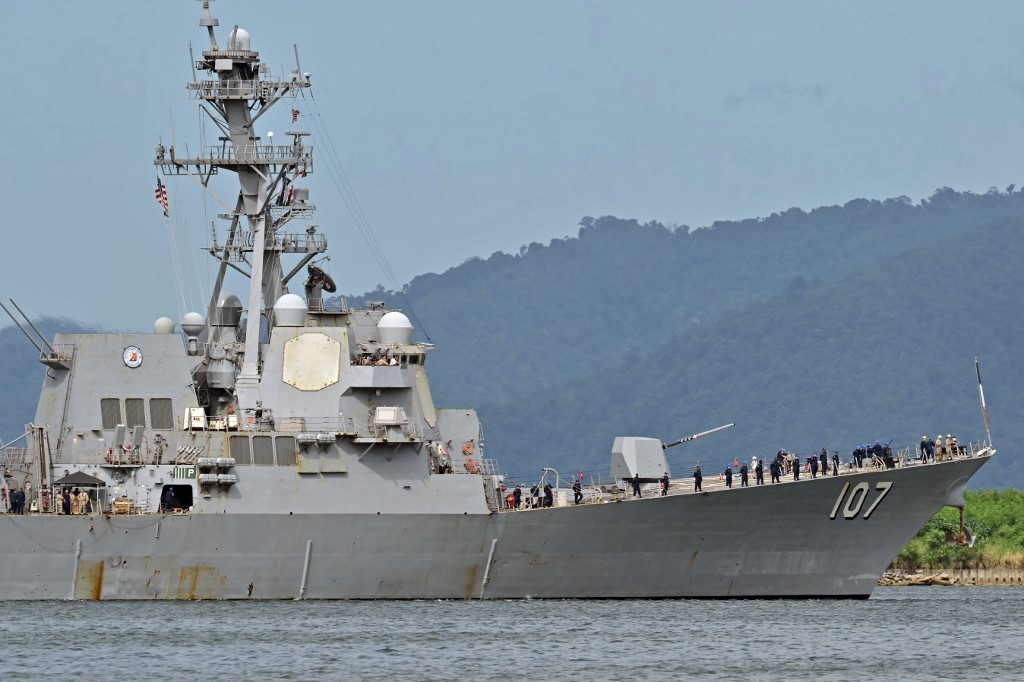The arrival of the USS Gravely, a United States warship, in Trinidad and Tobago has reignited debates over military aggression and regional stability in the Caribbean. While Trinidadian Prime Minister Kamla Persad-Bissessar emphasized the necessity of US collaboration in combating drug trafficking and crime, Barbados Prime Minister Mia Mottley voiced concerns over the militarization of the region, urging dialogue to preserve peace. Mottley, addressing her party’s annual conference, highlighted the Caribbean’s vulnerability to external threats, including the presence of US military vessels and the impending Hurricane Melissa. She called for adherence to the Caribbean Community’s (Caricom) founding principle of maintaining the region as a ‘zone of peace.’
This development follows the Trump administration’s announcement of intensified military operations in the Caribbean, including the deployment of the USS Gerald R Ford, the world’s largest aircraft carrier, as part of a counter-drug initiative. Critics argue that these actions could serve as a pretext for a potential land invasion of Venezuela. Recent US military strikes in international waters, which resulted in the deaths of Trinidad and Tobago nationals, have further fueled tensions. The US has yet to provide evidence supporting its claims of drug trafficking.
Prime Minister Persad-Bissessar defended the US presence, citing Trinidad and Tobago’s severe crime and drug-related challenges. She emphasized the benefits of joint training exercises and infrastructure upgrades facilitated by the US military. However, former Caricom leaders, including PJ Patterson and Bruce Golding, have called for a reduction in military buildup to avoid destabilizing the region.
Mottley, a staunch advocate for the rule of law, condemned extrajudicial killings and unilateral military actions, urging disputes to be resolved through the United Nations. She stressed the importance of negotiation and peaceful conflict resolution, warning against conflating law enforcement with military intervention. As the Caribbean grapples with these complex issues, the region’s leaders remain divided on the best path forward to ensure safety and stability.
